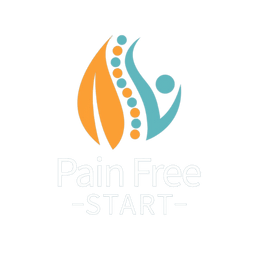Osteoarthritis vs. Rheumatoid Arthritis in the Knee: Understanding the Differences
Knee pain can significantly impact your daily life, but understanding its cause is essential for effective treatment. Osteoarthritis (OA) and Rheumatoid Arthritis (RA) are two of the most common types of arthritis that affect the knee. While they share some symptoms, they have distinct differences in causes, progression, and management.
In this blog, we’ll explore how OA and RA affect the knee, key symptoms to help you identify which type you may have, and what you can do to relieve pain and improve function.
What is Osteoarthritis (OA) of the Knee?
Osteoarthritis is the most common type of arthritis and often affects weight-bearing joints, such as the knees. It is a degenerative joint disease, meaning it develops over time due to wear and tear.
4 Key Signs of an Osteoarthritic Knee
✔ Gradual Onset: Symptoms develop slowly and worsen over time, often due to aging, previous injuries, or excessive joint stress.
✔ Localised Pain: Pain is typically limited to the knee joint and worsens with activity or weight-bearing.
✔ Stiffness: Knee stiffness is most noticeable after periods of inactivity but usually improves after a few minutes of movement.
✔ X-ray Findings: Imaging may show joint space narrowing, bone spurs (osteophytes), and changes in bone density. Learn more in this blog Understanding Arthritic Knees Through X-rays and Images: What Do They Show?
What is Rheumatoid Arthritis (RA) of the Knee?
Rheumatoid arthritis is an autoimmune disease that causes the immune system to attack joint tissues, leading to chronic inflammation and pain. Unlike OA, RA affects multiple joints and can involve the entire body.
4 Key Signs of Rheumatoid Arthritis in the Knee
✔ Symmetrical Joint Involvement: RA usually affects both knees, whereas OA often affects one more than the other.
✔ Systemic Symptoms: Unlike OA, RA can cause fatigue, fever, weight loss, and prolonged morning stiffness (lasting more than 30 minutes).
✔ Inflammatory Signs: Swelling, warmth, and tenderness around the knee joint are common in RA.
✔ Blood Test Markers: RA is diagnosed through blood tests, including Rheumatoid Factor (RF) and anti-CCP antibodies.
Want to know more about RA this blog will be helpful Rheumatoid arthritis – 7 symptoms you might not expect.

Join my FREE Masterclass where I share exercises, tips and more so you can move forwards with your knee. Click here to learn more and enrol.
Can You Have Both OA and RA in the Knee?
Yes, it is possible to have both OA and RA in the same knee, especially if you already have rheumatoid arthritis affecting multiple joints. If you experience symptoms of both conditions, it is important to seek medical advice to ensure proper management.
If you have RA or another inflammatory arthritis but also notice wear-and-tear symptoms similar to OA, you might have both conditions.
TOP TIP – Good news: My Arthritic Knee Program is suitable for both OA and RA (or a combination of both). The program includes a special section for people with RA, covering additional considerations for exercise and pain management. (Preview this section for FREE in the course content!)
Still Unsure? When to See a Doctor
If you’re unsure whether your knee pain is due to OA, RA, or a combination of both, then it’s crucial to see a health care provider – especially if you are concerned you have RA.
They can:
- Review your medical history
- Perform a physical examination
- Order X-rays and blood tests to confirm your diagnosis
TOP TIP – Early diagnosis of RA is essential to prevent joint damage and long-term complications.
Take Control of Your Knee Pain
Now that you understand the differences between OA and RA in the knee, you can take proactive steps toward relief. Don’t let knee pain limit your life!
✔ My Arthritic Knee Program helps you reduce pain and improve function—without making things worse.
✔ Designed for both OA and RA, it includes expert guidance, targeted exercises, and biomechanical assessments to help you strengthen your knee safely.
Start today and take back control of your knee health! Click here to learn more and get started!
You don’t have to accept knee pain as part of your daily life—take the right steps today to regain strength, mobility, and confidence in your movement.
Take care, Helen
Helen Manders BSc (Hons) MCSP HCPC
Chartered Physiotherapist Treating Arthritic Knees Since 2001
P.S. Join my FREE Masterclass where I share exercises, tips and more so you can move forwards with your knee. Click here to learn more and enrol.




